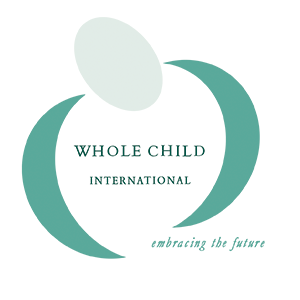El Salvador Fieldwork & De-Institutionalization Report
Our team is in the midst of our Protection and Quality of Care for Children project. Here are a few highlights from our fieldwork.
Recently, our team traveled to Guatemala City with our friends at Project Red to attend the regional ACH (Christian Alliance for Orphans) conference. Presentations focused on topics such as reuniting children from institutional care to families, child trafficking in Latin America, and transitional living services for youth.
We’re finalizing the QCUALS (Quality of Care in Limited-Resource Settings), our quality assessment tool for alternative care placements! This measurement tool allows agencies to assess the quality of care in childcare facilities. WCI is working in collaboration with Duke University on this important project. We continue to improve the QCUALS as we develop and learn more and in close coordination with our partners. We hope to continue to demonstrate the improvements in child development post WCI programming!
Recently, the University of Southern California (USC) carried out a qualitative study on deinstitutionalization in El Salvador. To learn more in-depth about this study read below!
De-Institutionalization Report:
USC carried out a qualitative study with three specific aims: 1) examine the impacts of the LEPINA (El Salvador’s law on the integrated child protection system) legislation and deinstitutionalization on youth and the child protection system of El Salvador; 2) identify institutional barriers to meeting the goals of LEPINA; and 3) provide recommendations for addressing barriers and utilizing facilitators to meet these goals and improve deinstitutionalization outcomes. This is a great first step in understanding what resources, including financial, and human, can best be leveraged to achieve the goals of LEPINA. WCI and USC have worked together with the government of El Salvador to identify not only what challenges and/or barriers exist, but also developed some proposals and recommendations that we will analyze together.
WCI and USC recognize that good laws are important. But so is effective implementation and enforcement of the law. That is why WCI and USC are working with the government of El Salvador to develop viable and relevant solutions that are appropriate for the El Salvador context.
Recommended solutions to these challenges included providing assistance to centers in transitioning from institutionalized care to delivering services to families both within the centers and in the community; provision of funding and resources to strengthen and expand the role of protection boards; establishment of a legal mandate for follow-up; implementation of training programs for all stakeholders, including center staff, clinical professionals, judges and legal representatives, and parents and children; establishment of policies for staff recruitment and performance evaluation; improving coordination and collaboration among key stakeholders in the system and related organizations; systematic collection and exchange of information on youth; establishment of a continuum of services that focuses on youth development and family strengthening; investment in foster care programs and other alternatives to institutionalization; and development of local support systems for deinstitutionalized youth and their families.

